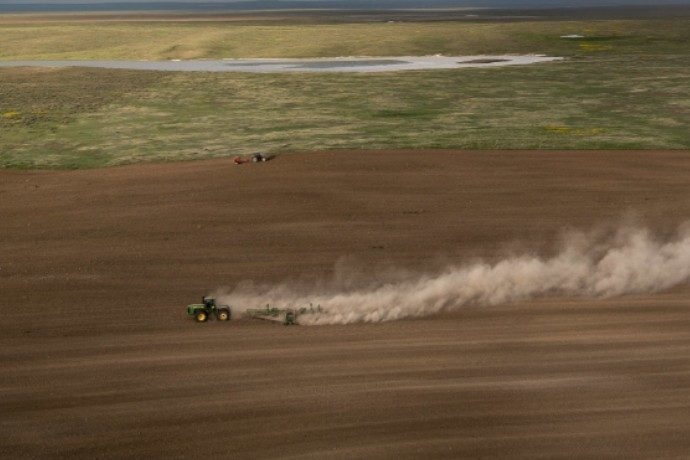WAYZATA, MINN. — As part of an initiative with the World Wildlife Fund (WWF), Cargill and Burger King, a Restaurant Brands International (RBI) company, recently announced plans to work with ranchers in Montana and South Dakota as part of a three-year grasslands restoration program.
The project is an effort to mitigate climate change effects by rehabilitating less productive soil for cattle grazing.
“We recognize the powerful opportunities we have to advance sustainability in food production together. Through our parent company’s Restaurant Brands for Good framework, we have showcased our commitment to implementing more sustainable business practices,” said Matthew Banton, global head of innovation and sustainability for Burger King. “Via the Grasslands Restoration project, we are proactively engaging with our peers, experts and industry stakeholders to help advance beef sustainability and mitigate the effects of climate change.”
During the process, 8,000 acres of marginal cropland in Montana and South Dakota will be reseeded and converted into ecologically diverse grasslands with beef cattle grazing the land to maintain the area. Cargill said that if the program is successful it is projected to save the carbon equivalent of driving nearly 70 million miles in an average passenger vehicle.
“We are building on the strong environmental stewardship led by farmers and ranchers, and will partner with producers, customers and innovators to drive sustainability solutions,” said Heather Tansey, sustainability lead for Cargill’s protein and animal health businesses. “At Cargill, we are in a unique position to drive connection across the entire North American beef supply chain. Together we can scale realistic solutions that address sustainability challenges.”
Reseeding work will be focused on land that is not productive for farming or other agricultural uses, according to the initiative. Ranchers in Montana and South Dakota will maintain the land and guide the cattle on the grasslands during the restoration effort. The collaboration also builds on WWF’s existing Sustainable Ranching Initiative.
“Ranchers are some of the most important stewards of the grasslands of the Northern Great Plains. As managers of over 70% of the remaining intact grasslands within this region, they hold the key to its future,” said Martha Kauffman, managing director of WWF’s Northern Great Plains program. “Our collaboration with Cargill and Burger King will restore formerly plowed areas within these vital ecosystems back to grasslands through the seeding of native grasses. As these ecosystems rebuild under the management of our ranching partners, the environmental value and the health of our grasslands, including their ability to support wildlife, will continue to grow for years to come.”
This project falls under Cargill’s BeefUp Sustainability, an initiative introduced in 2019 to reduce greenhouse gas emissions across the company’s North American beef supply chain 30% by 2030. Burger King said this endeavor is also a part of an RBI’s sustainability program, Restaurants Brands for Good.


